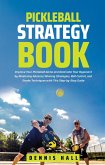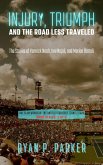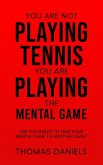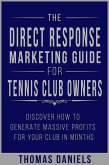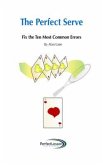-- Roger T. Ames, Ph.D., professor of Chinese philosophy, University of Hawai'i at Manoa.
"The Tao of Tennis is an intriguing blend of tennis coaching and ancient Eastern philosophy. Bob's adaptation contains nuggets of sage advice, though, as with the original [Tao Te Ching], there are passages that may not seem totally comprehensible to the modern reader. If you can get past this the book is a worthy read. There is certainly much good in it."
-- Allen Fox, Ph.D., Intercollegiate Tennis Association Hall of Fame player (UCLA) and coach (Pepperdine), and author of Tennis: Winning the Mental Match.
If it was totally comprehensible it wouldn't be Tao! This book is a chapter by chapter adaptation of Lao Tzu's Tao Te Ching, the twenty-five hundred year old classic work of Chinese wisdom literature. I'll leave it to the interested reader to Google "Tao Te Ching" for in depth information.
In a nutshell, the Tao Te Ching has three basic themes. The primary one is a broad theory of metaphysics, the traditional branch of philosophy that, according to Wikipedia, "attempts to clarify the fundamental notions by which people understand the world, e.g., existence, objects and their properties, space and time, cause and effect, and possibility." The second theme concerns how individuals should act so as to be in harmony with the world. The third concerns how to be a leader in harmony with the world.
It's important to note that the Tao Te Ching's counsel is pragmatic, not moralistic. We are advised to act a certain way not because it's the ethical thing to do, but because it's the sensible thing to do; to do otherwise would be counterproductive.
I undertook this project with two purposes in mind. The first was to apply the Tao Te Ching specifically to the sport of tennis. It has always applied to tennis (as it does to all human endeavors), but I wanted to make the connection explicit. My second goal was to stay true to the simple and succinct style of the traditional English translations. One of my favorite aspects of the Tao Te Ching is that it's fairly easy to read, but challenging to comprehend.
If I've done what I set out to do you will spend considerably more time thinking about these eighty-one brief chapters than actually reading them. As Bjorn Borg said, "You have to find it. No one else can find it for you." The Tao Te Ching is a map, not a destination.
Dieser Download kann aus rechtlichen Gründen nur mit Rechnungsadresse in A, B, CY, CZ, D, DK, EW, E, FIN, F, GR, H, IRL, I, LT, L, LR, M, NL, PL, P, R, S, SLO, SK ausgeliefert werden.

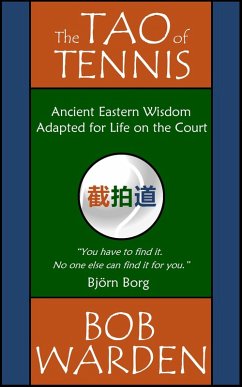

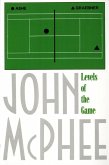
![Pickleball for Beginners: Level Up Your Game with 7 Secret Techniques to Outplay Friends and Ace the Court [III Edition] (eBook, ePUB) Pickleball for Beginners: Level Up Your Game with 7 Secret Techniques to Outplay Friends and Ace the Court [III Edition] (eBook, ePUB)](https://bilder.buecher.de/produkte/64/64553/64553621m.jpg)
